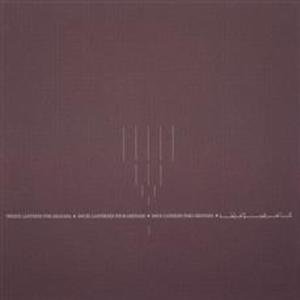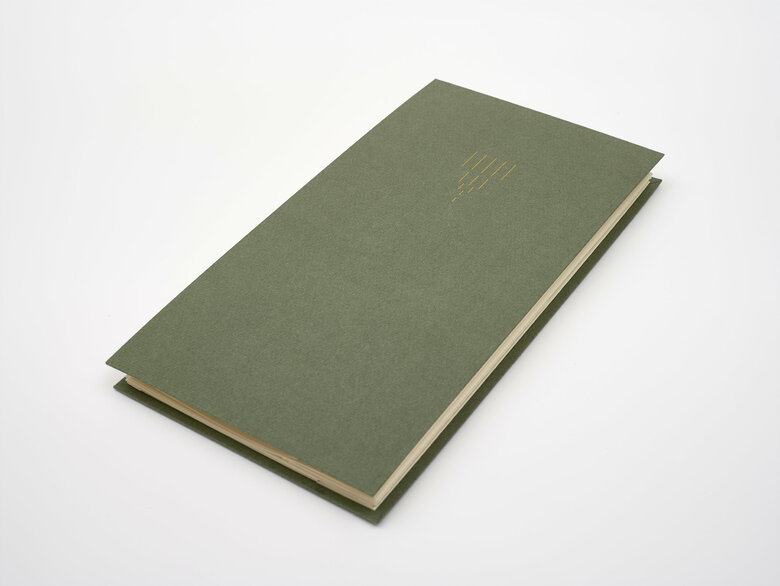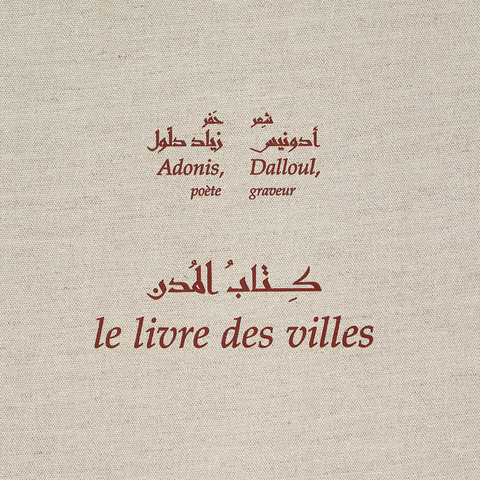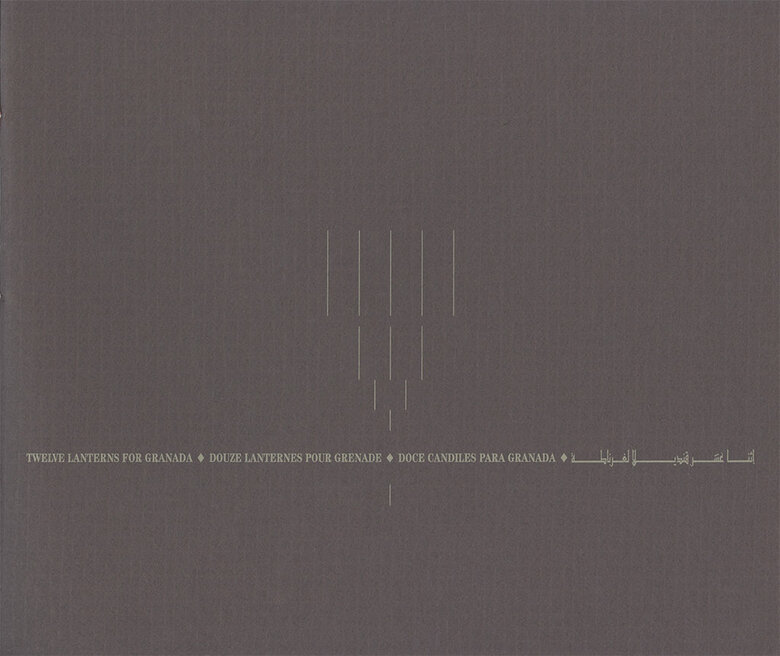This biography is for Adonis, please refer to Kamal Boullata's page for his biography. Adonis Ali Ahmad Said Esber was born on January one, 1930, to a modest Alawite family in Al-Qassabin,...


ADONIS, Syria (1930)
Bio
Written by YAACOUB RUBAI
This biography is for Adonis, please refer to Kamal Boullata's page for his biography.
Adonis Ali Ahmad Said Esber was born on January one, 1930, to a modest Alawite family in Al-Qassabin, a village near the northwestern shores of Syria. A poet, essayist, literary critic, translator, and revolutionary, he is renowned as one of the most influential figures in modern Arabic poetry. Due to his family’s financial instability, Adonis was unable to afford formal schooling and instead received Islamic and literacy education at the local Kuttab. Despite these limitations, his father nevertheless ensured Adonis’ early immersion into classical Arabic poetry. After recognizing his skill during a visit to Al-Qassabin in 1944, the newly elected Syrian president Shukri al-Quwatli offered the young poet a grant to study at the last French Lycée in Tartus. After being rejected by several magazines for the Islamic associations of his given name, Said implicated his pagan-mystic ideology by adopting the pen name “Adonis” at the age of 17, after the Greek God of fertility, resurrection and spiritual renewal. Adonis attended other national schools after the Lycée shut down in 1945 and graduated at 19. He secured a government scholarship to study law and philosophy at the University of Damascus in 1951, after which he served in the Syrian military. During his military service, in 1955, he was briefly imprisoned for affiliations with the Syrian Social Nationalist Party that opposed the colonization of Greater Syria and sought a secular and progressive national Greater Syria. Forced into exile following his release from jail, he settled in Beirut in 1956, where he married the literary critic Khalida Saleh-Said. The couple had two daughters, and in 1973 Adonis pursued a doctoral degree in Arabic literature at the University of Saint Joseph in Beirut.
As he found creative refuge in Beirut’s vibrant community of artists, writers, and exiles, Adonis immersed himself in poetry and published his first collection First Poems in 1957. Alongside the Syro-Lebanese poet Yusuf Al-Khal, he co-founded and edited Majjallat Shi’r, arguably the most progressive and influential Arab literary journal and a prime platform for the modernist Arabic literature movement. Shi’r was met with significant criticism for its secular and anti-propaganda agenda that reflected pan-Arabism and championed experimental poetry. Al-Khal and Adonis opposed the suppression of individual creativity in response to a growing mandate that literature solely services the immediate political needs of the Arab nation. Majjallat Shi’r ceased publication in 1967 after a series of suspensions. The following year, Adonis founded another freethinking literary periodical, Mawaqif, which circulated until 1994. He also founded and edited Al-Akhar magazine from 2011 to 2013, which published essays on Arabism, philosophy, politics, and religion.
As a secularist, Adonis refused religious dogmas and their imposition on society. In 2013, Salafist Islamic scholar Abdelfetah Zeraoui Hamadache issued a fatwa calling for Adonis’ books to be burned in the Arab world.
Although he critically examined contemporary socio-political issues in the Middle East, Adonis was more concerned with integrating artistic liberty in his work as a poet. He wanted to modernize poetry toward innovative forms and subject matter. His most acclaimed poem, Aghani Mihyar Al-Dimashqi, marked disruption in Arabic poetry and language by experimenting with free verse and variable meters as well as introducing prose poetry. His use of new syntax, metaphors, and structure strove to break the linearity of traditional poetic texts. In his essay The Time for Poetry, Adonis defined modern poetry as a change in the order of things and rebellion against old forms. For Adonis, new poetry involved metaphysical sensitivity that can be comprehended only through imagination and dreams. He was also a leading advocate of the Neo-Sufi trend in poetry, expressing nationalistic views in tandem with a mystical outlook inspired by Sufi philosophy.
During the 1990s, Adonis collaborated with several artists to create visual adaptations of his poetry. Fascinated by the poet’s Petra Tablet, for example, the Jordanian artist Mona Saudi illustrated the poem in a series of drawings on silkscreen (1997). Twelve Lanterns for Granada (1995), a collaborative work with the Palestinian artist Kamal Boullata, consists of twelve signed silkscreen prints alongside two accordion books based on specific architectural features of the Alhambra, Granada’s central monument. One book contains Adonis’ Arabic texts and Spanish translations, and the other, English and French translations. Syrian artist Ziad Dalloul also worked with Adonis to create Le Livre des Villes (1999), an art book containing nine poems that showcase the heterogeneity of nine Arab, European and American metropolises whose juxtaposition reflects Adonis’ deconstruction of the notion that Arab culture is isolated and stuck in the past. As an exile, he also portrays nostalgia for his home village against ambivalence toward more substantia cities, noting the possibilities they offer while aware of what they strip away. The poetic landscapes of city squares, streets, cafes, neighborhoods, and their inhabitants combine physical and human geography to highlight the architecture and culture of these cities, to which Dalloul responded with 18 silkscreen prints.
In 2002 Adonis experimented with visual art he coined as Raqima, taken from Raqama, meaning to write and color simultaneously. His visual art blends calligraphy, collage and, ink by using discarded objects like fabric and parchment on a background of his invented style of calligraphy and muted colors. He begins by citing verses in homage to great Arab poets like Bashar ibn Burd and Abu Zuaib al-Huzal and weaves his own on themes like wandering, dreams, and love.
Adonis has lived in Paris with his wife and two daughters since 1985.
Sources
"Adonis (Ali Ahmad Esber)."American University of Beirut. Accessed April 16, 2019. https://www.aub.edu.lb/doctorates/recipients/Pages/adonis-profile.aspx.
"Adonis: The Difference between a Poem and a Painting." Arab Hyphen. April 03, 2015. Accessed April 18, 2019. https://arabhyphen.wordpress.com/2015/04/03/adonis-the-difference-between-a-poem-and-a-painting/.
Storey, Thomas. "Why The Syrian Poet Adonis Is Our Greatest Living Cultural Dissident." Culture Trip. February 08, 2012. Accessed April 23, 2019. https://theculturetrip.com/middle-east/syria/articles/adonis-cultural-dissident/.
Jaggi, Maya. "Adonis: A Life in Writing." The Guardian. January 27, 2012. Accessed April 23, 2019. https://www.theguardian.com/culture/2012/jan/27/adonis-syrian-poet-life-in-writing.
KalsiSpecial, Jyoti. "Two Facets of an Artist." Gulf News – No.1 in UAE and Dubai for Breaking News, Opinion and Lifestyle. October 31, 2018. Accessed April 17, 2019. https://gulfnews.com/entertainment/arts-culture/two-facets-of-an-artist-1.1978981.
Adonis, and Mona Saudi. Petra Tablet: The Hands of Stone Draws The Place. Translated by Lubna Fahoum. Edited by Ali Assam and Ruth Stollery Abudeeb. Beirut: Mona Saudi, 2011.
Adonis, and Ziad Dalloul. Le Livre Des Villes. Translated into French by Unesco. Paris: L'Institut Du Monde Arabe, 1999.
CV
Selected Solo Exhibitions
2003
Area Gallery, Paris, France
2000
L’institut du Monde Arabe, Paris, France
Institute for Advanced Studies, Berlin, Germany
Selected Group Exhibitions
2019
A la Plume, Au Pinceau, Au Crayon, Dessins du Monde Arabe, World, Institut du monde, Paris, France
2008
Le Louvre des Antiquaries: Galligraphies d’Orient, Paris, France
Atassy Gallery, Damascus, Syria
2007
Shuman’s Gallery, Amman
Publications
Poems
2007
Ihdaʾ Hamlet Tanaššaq Ǧunūn Ophelia, Beirut, Lebanon
Warrāq Yabīʿ Kutub al-Nuǧūm, Beirut, Lebanon
2006
Tārīḫ Yatamazzaq fī Ǧassad ʾImraʾah, Beirut, Lebanon
2003
Tanabbaʾ ʾAyyuhā-l-ʾAʿmā, Beirut, Lebanon
Awwal al-Ǧassad, ʾĀḫir al-Baḥr, Beirut, Lebanon
2002
Al-Kitāb, vol. 3, Beirut, Lebanon
1998
Fahras li-ʾAʿmāl al-Rīḥ, Beirut, Lebanon
Al-Kitāb, vol. 2, Beirut, Lebanon
1996
Al-ʾAʿmāl aš-Šiʿriyyat al-Kāmilah, Damascus, Syria
Mufradāt Šiʿr, Damascus, Syria
1995
Al-Kitāb, vol. 1, Beirut, Lebanon
1994
Abǧadiya Ṯānia, Casablanca
1988
Iḥtifāʾan bil-ʾAšyāʾ al-Ġāmiḍat al-Wāḍiḥah, Beirut, Lebanon
1987
Šahwah Tataqaddam fī Ḫarāʾiṭ al-Māddah, Casablanca, Morocco
1985
Kitāb al-Ḥiṣār, Beirut, Lebanon
1980
Kitāb al-Qaṣāʾid al-Ḫams, Beirut, Lebanon
1977
Waqt Bayna l-Ramâd wal-Ward, Beirut, Lebanon
1968
Al-Masraḥ wal-Marāya, Beirut, Lebanon
1965
Kitāb al-Taḥawwulāt wal-Hiǧra fī ʾAqālīm an-Nahār wal-Layl, Beirut, Lebanon
1961
Aġāni Mihyār ad-Dimašqī, Beirut, Lebanon
1958
Awrāk fī l-Rīḥ, Beirut, Lebanon
1957
Qaṣāʾid ʾūlā, Beirut, Lebanon
Anthologies
1968
Diwân al-Shi’r al-‘Arabî (3 Volumes), Beirut, Lebanon
1967
Mukhtârât min Shi’r al-Sayyâb, Beirut, Lebanon
1963
Mukhtârât min Shi’r Yûsuf al-Khâl, Beirut, Lebanon
Essays
2008
Al-Kitab Al-khitab Al-Hijab, Beirut, Lebanon
Ra`s Al-Lughah, Jism Al-Sahra`, Beirut, Lebanon
2004
Al-Muheet al-Aswad, Beirut, Lebanon
2002
Mûsiqa al-Hût al-Azraq, Beirut, Lebanon
1993
Al-Nass al-Qur’âni wa Âfâq al-Kitâba, Beirut, Lebanon
Al-Nizâm wal-Kalâm, Beirut, Lebanon
Hâ Anta Ayyuha l-Waqt, Beirut, Lebanon
1992
Al-Sûfiyya wal-Sureâliyya, London
1985
Syasat al-Shi’r, Beirut, Lebanon
Al-Shi’ryyat al-Arabyya, Beirut, Lebanon
1980
Fâtiha li-Nihâyât al-Qarn, Beirut, Lebanon
1978
AL-Thâbit wal-Mutahawwil, vol. 3, Beirut, Lebanon
1977
AL-Thâbit wal-Mutahawwil, vol. 2, Beirut, Lebanon
1974
AL-Thâbit wal-Mutahawwil, vol. 1, Beirut, Lebanon
1972
Zaman al-Shi’r, Beirut, Lebanon
1971
Muqaddima lil-Shi’r al-Arabî, Beirut, Lebanon
Awards and Honors
2017
PEN/Nabokov Award for Achievement in International Literature
2016
Stig Dagerman Prize
2015
Erich-Maria-Remarque-Friedenspreis Award
Asan Viswa Puraskaram-Kumaranasan World Prize for Poetry
2014
Janus Pannonius International Poetry Prize (Co-winner)
2013
Petrarca-Preis Literary and Translation Award
Golden Tibetan Antelope International Prize (Co-winner)
2011
Goethe Prize
2008
Giovanni Pascoli Prize, San Mauro, Italy
Max Jacob Prize for Poetry, France
Premio Grinzane Cavour per la Lettura, Italy
2007
Bjørnson Prize, Norway
2006
Pio Manzu- Centro Internazionale Recherche Prize
Medal of the Italian Cabinet
2003
American Award in Literature
Al-Owais Award (Co-winner)
2001
Goethe Medal
1999
Nonino Poetry Award, Italy
1997
Ordre des Arts et des Lettres, France
Golden Wreath of Struga Poetry Evenings
1995
Lebanese Cultural Forum Prize in France
Prix Méditerranée-Etranger
International Nazim Hikmet Poetry Award
1993
Feronia-Cita di Fiamo Priwe, Rome
1991
Prix Jean-Marlieu-Etranger, Marseille
1990
Member of Académie Universelle des Cultures, Paris
1986
Highest Award of the International Poem Biennale, Brussels
Prix des Amis du Livre, Beirut, Lebanon
1983
Appointed “Officier des Arts et des Lettres” by the Ministry of Culture, Paris
Member of Académie Stéphane Mallarmé
1974
National Prize of Poetry, Beirut, Lebanon
1971
Syria-Lebanon Award of International Poetry Forum, Pittsburg
Adonis has also done a number of translations of different materials that vary between poems, books, and essays alternatively between Arabic and French.
Documents
From ‘Ali> Ah}mad Sa‘i>d to Adonis: A Study of Adonis’s Controversial Position on Arab Cultural Heritage (tura>th)
Nadia M. Wardeh
Academia, English, 2010
Adonis: Towards a New Arab Culture
Issa J. Boullata
International Journal of Middle East Studies, Vol. 20, No. 1 (Feb., 1988), pp Cambridge University Press. 109-112, English, 1988
Review Essay
Adonis and Muḥammad al-Māghūt: Two Voices in a Burning Land
John Asfour
Journal of Arabic Literature, Vol. 20, No. 1 (Mar., 1989), pp. 20-30 Brill, English, 1989
A Reading of Adonis' Poem "Unintended Worship Ritual"
Issa J. Boullata
International Journal of Middle East Studies, Vol. 21, No. 4 (Nov., 1989), pp. 541-562 Published by: Cambridge University Press, English, 1989
Artists Re-Member Palestine in Beirut
Kamal Boullata
Journal of Palestine Studies , Vol. 32, No. 4 (Summer 2003), pp. 22-38 Published by: University of California Press on behalf of the Institute for Palestine Studies, English, 2003
WHAT IS MODERN ABOUT MODERN ARABIC POETRY?
ADNAN HAYDAR
Al-'Arabiyya, Vol. 14, No. 1/2 (Spring & Autumn 1981), pp. 51-58 Published by: Georgetown University Press, English, 1981
To Adonis, With Love
O.N.V. Kurup and A.J. Thomas
Indian Literature, Vol. 59, No. 6 (290) (November/December 2015), pp. 23-24 Published by: Sahitya Akademi, English, 2015
Adonis: A Poet in Lebanon
Samuel Hazo and Mirene Ghossein
Books Abroad, Vol. 46, No. 2 (Spring, 1972), pp. 238-242 Published by: Board of Regents of the University of Oklahoma, English, 1972
British Museum 9_11.pdf
Press
قمر الزمان علوش يكتشف” فراغا” في شعر أدونيس!
مصطفى الولي
geiroon.net, Arabic, 2016
"دراسة تحليلية عن "الموت المتخيل فى شعر أدونيس
بلال رمضان
Arabic, 2013
Syrian poet Adonis says poetry ‘can save Arab world’
dailystar.com.lb, English, 2016
ADONIS Artwork
Become a Member
Join us in our endless discovery of modern and contemporary Arab art
Become a Member
Get updates from DAF
Follow Artists
Save your favourite Artworks
Share your perspectives on Artworks
Be part of our community
It's Free!
We value your privacy
TermsCookiesPrivacy Policies
Become a Member
Get updates from DAF
Follow Artists
Save your favourite Artworks
Share your perspectives on Artworks
Be part of our community
It's Free!
We value your privacy
TermsCookiesPrivacy Policies
Become a Member
Get updates from DAF
Follow Artists
Save your favourite Artworks
Share your perspectives on Artworks
Be part of our community
It's Free!
We value your privacy
TermsCookiesPrivacy Policies
Welcome to the Dalloul Art Foundation
Thank you for joining our community
If you have entered your email to become a member of the Dalloul Art Foundation, please click the button below to confirm your email and agree to our Terms, Cookie & Privacy policies.
We value your privacy, see how
Become a Member
Get updates from DAF
Follow Artists
Save your favourite Artworks
Share your perspectives on Artworks
Be part of our community
It's Free!
We value your privacy
TermsCookiesPrivacy Policies







